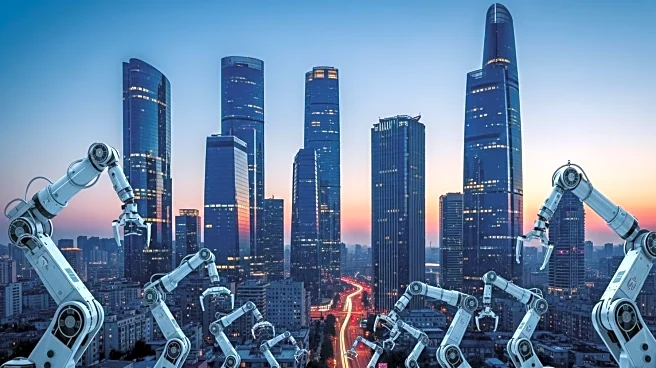What's Happening?
The influx of workers with artificial intelligence skills is significantly impacting rental markets in major U.S. cities. According to CBRE, the number of AI-skilled workers has surged by over 50% in the past year, reaching 517,000 across the U.S. and Canada. This growth is concentrated in cities like San Francisco, New York City, Seattle, and Washington, D.C., where housing costs were already high. The demand from these high-salary workers has pushed rents up by 14% in Manhattan, 12% in Washington, 7% in Seattle, and nearly 6% in San Francisco between 2021 and 2024. AI professionals in these cities spend a significant portion of their income on housing, adding pressure to the rental market.
Why It's Important?
The rise in rental costs due to the influx of AI workers highlights the broader economic impact of the tech industry on urban housing markets. While AI professionals can afford higher rents, this trend exacerbates the housing affordability crisis for other residents. Cities experiencing this surge may face increased socio-economic disparities, as long-term residents struggle to keep up with rising costs. The situation underscores the need for balanced urban planning and housing policies that accommodate both high-income tech workers and lower-income residents.
What's Next?
As the demand for AI talent continues to grow, cities may need to implement measures to mitigate the impact on housing affordability. Potential steps include increasing housing supply, revising zoning laws, and investing in affordable housing projects. Stakeholders, including city planners and policymakers, will likely face pressure to address these challenges to prevent further displacement of long-term residents.










